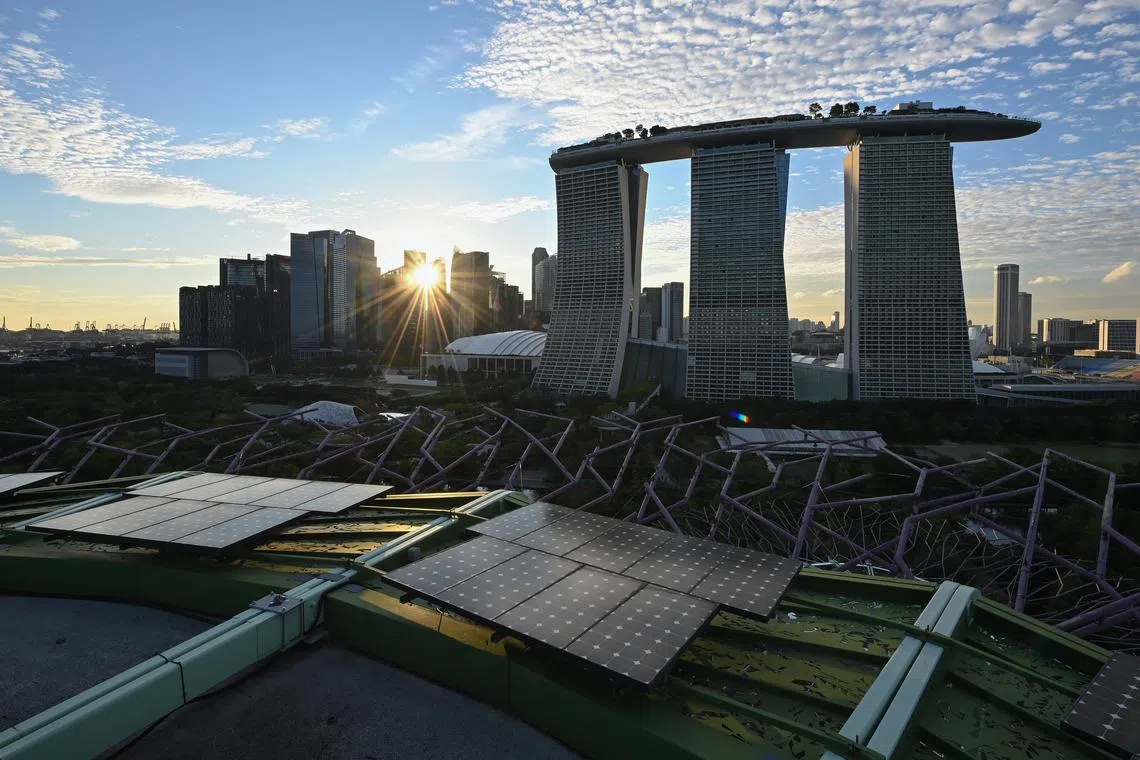Government to publish annual report on public sector’s sustainability efforts
Sign up now: Get ST's newsletters delivered to your inbox

Ms Fu said that the Government will start with reporting its Scope 1 and 2 emissions, electricity and water consumption.
ST PHOTO: LIM YAOHUI
Follow topic:
SINGAPORE – From the 2023 financial year (FY), the Government will publish an annual report to track the public sector’s efforts, progress and plans in rolling out its sustainability agenda.
Under the GreenGov.SG initiative, the public sector will strive for ambitious sustainability targets, and to be a positive influence and enabler of green efforts, said Minister for Sustainability and the Environment Grace Fu on Thursday.
Ms Fu said that the Government will start with reporting its Scope 1 and 2 emissions, and electricity and water consumption, with reference to international standards and frameworks.
Scope 1 emissions refer to a company or entity’s direct emissions – such as emissions from a company’s fleet vehicles like cars and lorries, while Scope 2 emissions refer to indirect ones, such as greenhouse gas emissions purchased from an electricity producer that is generated off-site.
Ms Fu said that from FY2024, all statutory boards will also make their annual environmental sustainability disclosures.
She noted that several statutory boards have started doing so. These include the Monetary Authority of Singapore, National Environmental Agency, PUB, Maritime and Port Authority of Singapore and Sentosa Development Corporation.
“They have been systematically incorporating sustainability in their decision-making and risk management frameworks to achieve concrete sustainability outcomes,” said Ms Fu.
Elaborating on how the public sector can drive the nation’s transition to a green economy by leveraging its procurement budget, Ms Fu said that starting from 2024, the Government will start considering the sustainability practices of the company that it purchases from.
Therefore, starting with large construction and information and communications technology tenders, up to 5 per cent of evaluation points will be set aside for environmental sustainability considerations, such as the carbon footprint of a company, whether it has adopted low-carbon solutions, or minimised the amount of packaging materials.
She noted that both sectors make up more than 60 per cent of the value of government procurement contracts.
Some examples of construction projects include business parks, industrial buildings, larger roads and MRT projects.
“We will review the (5 per cent) amount and engage the industry closely as we expand the adoption of sustainability criteria to more public sector procurement sectors,” said Ms Fu.
She stressed that environmental sustainability is not without cost, and consumers would have to be ready to pay a bit more for greener goods and services.
“Green procurement in the public sector will encourage suppliers to adopt sustainability practices and develop greener products and services,” said Ms Fu.
“I hope that these initiatives under GreenGov.SG will spur many in the private sector to follow suit, in publishing their own sustainability reports, and incorporating sustainability considerations in their procurement policies.”


